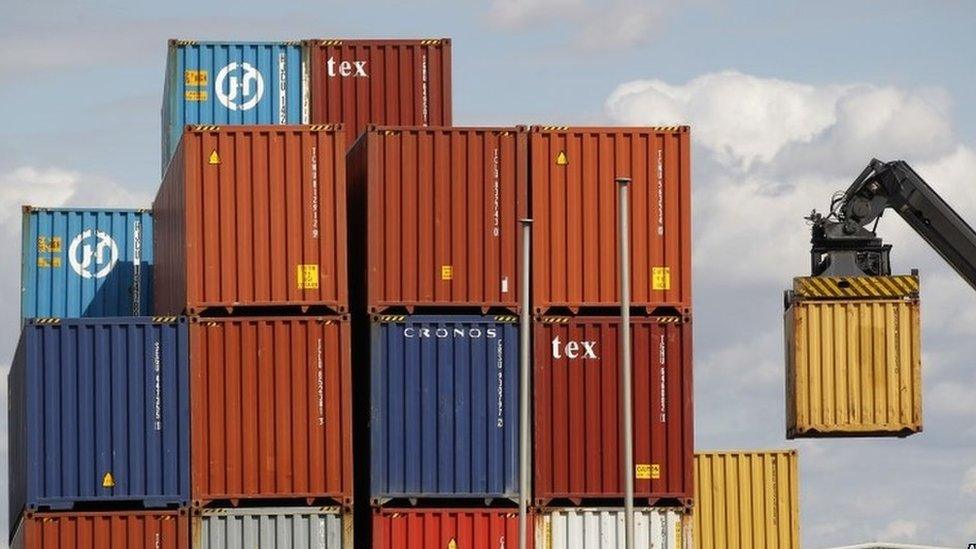MPs urge Commons veto over post-Brexit trade agreements
- Published

Parliament must be given a veto over any trade deals the UK signs after Brexit, a committee of MPs has urged.
Ministers hope to begin negotiating deals with key partners once the UK leaves the EU in March and start implementing them from 2021 onwards.
The International Trade Committee said MPs must have a "meaningful role" in ratifying deals, with scrutiny at an early stage and a decisive final vote.
The government is not obliged to give Parliament a vote on treaties it signs.
However, ministers bowed to pressure and agreed to give MPs a vote on the terms of the UK's withdrawal from the EU which, if the Commons approves it next month, will take the form of a treaty.
Theresa May faces an uphill struggle getting the agreement through the Commons, having postponed the crucial vote earlier this month in the face of what looked like a heavy defeat.
Many Tory MPs are concerned that the agreement will keep the UK indefinitely tied to EU rules and regulations, and hamper its ability to strike trade deals with countries such as the US and Canada.
US President Donald Trump has questioned the value of a future trade deal with the UK if it is not able to alter its tariffs and regulations.
But, at the same time, campaigners have warned that the UK may be forced to water down food safety, consumer protection and environmental standards to reach a deal with one of its largest trading partners.
'Consultation not concealment'
MPs are calling for Parliament to be given an enhanced role in considering future trade agreements once the UK regains the power to negotiate its own deals.
The cross-party committee is urging the government to operate from a "presumption of transparency rather than secrecy" in negotiating the UK's post-Brexit trade policy.
Its new report suggests MPs debate a substantive, amendable motion before negotiations are under way, once the government has agreed an outline approach - allowing Parliament to express its "concerns or objections", and lowering the risk of it rejecting eventual negotiated agreements.
The committee also recommends that the government hold regular consultations with interested parties, such as businesses, to enable them to share their opinions while the devolved administrations should have a statutory role in the process.
The SNP's Angus MacNeil, who chairs the committee, said the government's current plans for Parliamentary input were "characteristically vague".
"Our report makes an unequivocal argument for transparency over secrecy, consultation over concealment, and parliamentary debate over simple rubber-stamping," he said.
"If the proper processes and protections are not put in place from the outset, the government may fail to realise the UK-wide post-Brexit benefits it has gone to such lengths to promote."
A Department for International Trade spokesperson said it had been "very clear that we will not lower food standards as part of any new free trade agreement".